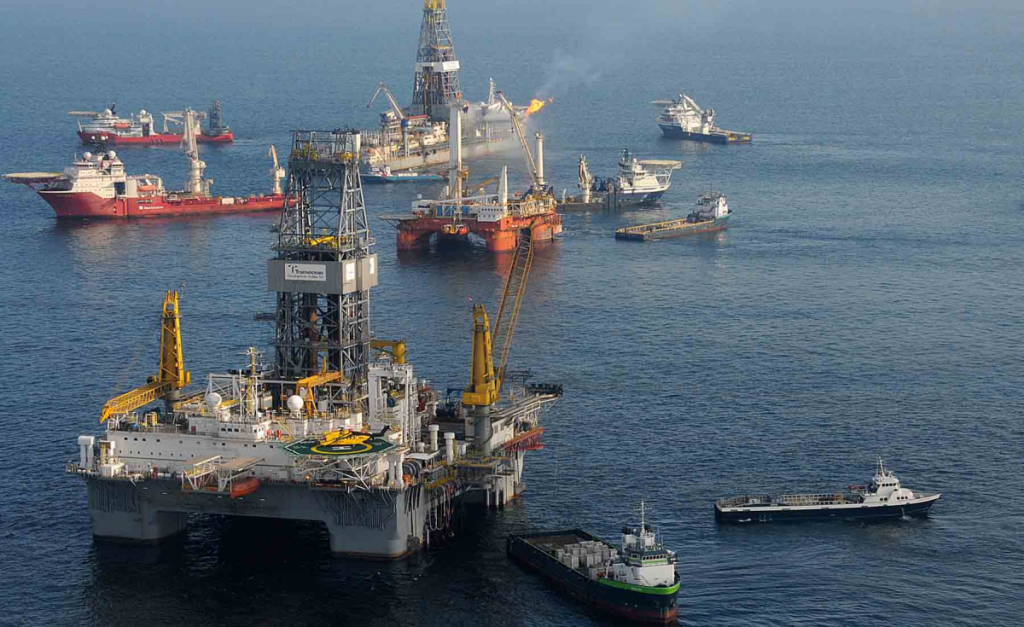Nigeria’s excess crude oil revenue has risen to N11.1 billion ($36.6m) daily while the price of crude oil has hit $60.44 per barrel in the international market.
The nation’s N7.4 trillion in the 2017 budget was based on $44.50 per barrel reference price and oil production of 2.3 million barrels per day.
But the price hit $60.44 per barrel Saturday as a result of compliance with the Organisation of Petroleum Exporting Countries (OPEC) oil cut, thus enabling the nation to generate $36.6 million from the export of 2.3 million bpd to the global market.
This amounts to N11.1 billion at the official exchange rate of N305 to the US dollar.
Vanguard’s survey of the international oil market Saturday showed that the price of Brent stood at $60.44 per barrel.
The price of WTI stood at $53.90 per barrel, while the price of OPEC basket of 14 crudes, including Nigeria’s Bonny Light, stood at $56.45 per barrel.
‘’The price of OPEC basket of fourteen crudes stood at $56.45 a barrel on Thursday, compared with $56.33 the previous day, according to OPEC Secretariat calculations.
‘’The OPEC Reference Basket of Crudes (ORB) is made up of the following: Saharan Blend (Algeria), Girassol (Angola), Oriente (Ecuador), Zafiro (Equatorial Guinea), Rabi Light (Gabon), Iran Heavy (Islamic Republic of Iran), Basra Light (Iraq), Kuwait Export (Kuwait), Es Sider (Libya), Bonny Light (Nigeria), Qatar Marine (Qatar), Arab Light (Saudi Arabia), Murban (UAE) and Merey (Venezuela),” OPEC stated Saturday.
Meanwhile, a total of 24 participating OPEC and non-OPEC producing nations are said to have agreed on the landmark ‘Declaration of Cooperation’ at the end of last year to adjust production by approximately 1.8 mb/d, for a period of six months, beginning January 1.
Dr. Mohammed Barkindo, OPEC Secretary General, said this achieved ‘’through extensive and well-coordinated consultations, enormous commitment, great diligence, necessary flexibility and strategic compromises.
Dr. Barkino noted ”This has since been extended by a further period of nine months, to the end of March 2018. The ‘Declaration of Cooperation’ is unparalleled in the history of the oil industry. Given the nature of this oil market cycle, with the magnitude of the price drop in real terms, higher than for all previous cycles, the multiplier effect that low oil prices have had on deflation, and its destructive impact on investments, companies and jobs, a collective and concerted effort was required. No-one could have acted alone.
‘’The historic commitment made by the 24 oil producing nations was one to all industry stakeholders, both producers and consumers, as well as one to the broader global community, through the move to restore oil market stability and the potential positives of this for the global economy.
‘’Of course, when the ‘Declaration of Cooperation’ came into being, we also recognized that this historic decision was only the end of the beginning of this process. The decision had to be delivered on.
‘’Again, we were greeted with sceptics – we heard stories of OPEC’s often weak conformity to past production adjustments, and the lack of past support from non-OPEC nations.
‘’While the process has not always been smooth, given the severity of this cycle, I believe that if we look back over the past nine months or so, we can be happy with our collective efforts to overcome the challenges of the current oil market cycle.’’
As a result of low oil price, President Muhammadu Buhari had before now, forwarded a request to the National Assembly to approve external borrowing plan of $29.960 billion to execute key infrastructure projects across the country between 2016 and 2018.
In another development, the Federation Account Allocation Committee last month shared N473.8 billion among the three tiers of government as revenue from the sale of crude oil.
Mrs. Kemi Adeosun, Finance Minister, said gross revenue of N400.3 billion was realised against the preceding month’s N322 billion by a margin of N78.3 billion.
Adeosun noted that the nation’s Excess Crude Account remained unchanged at N2.3 billion.

